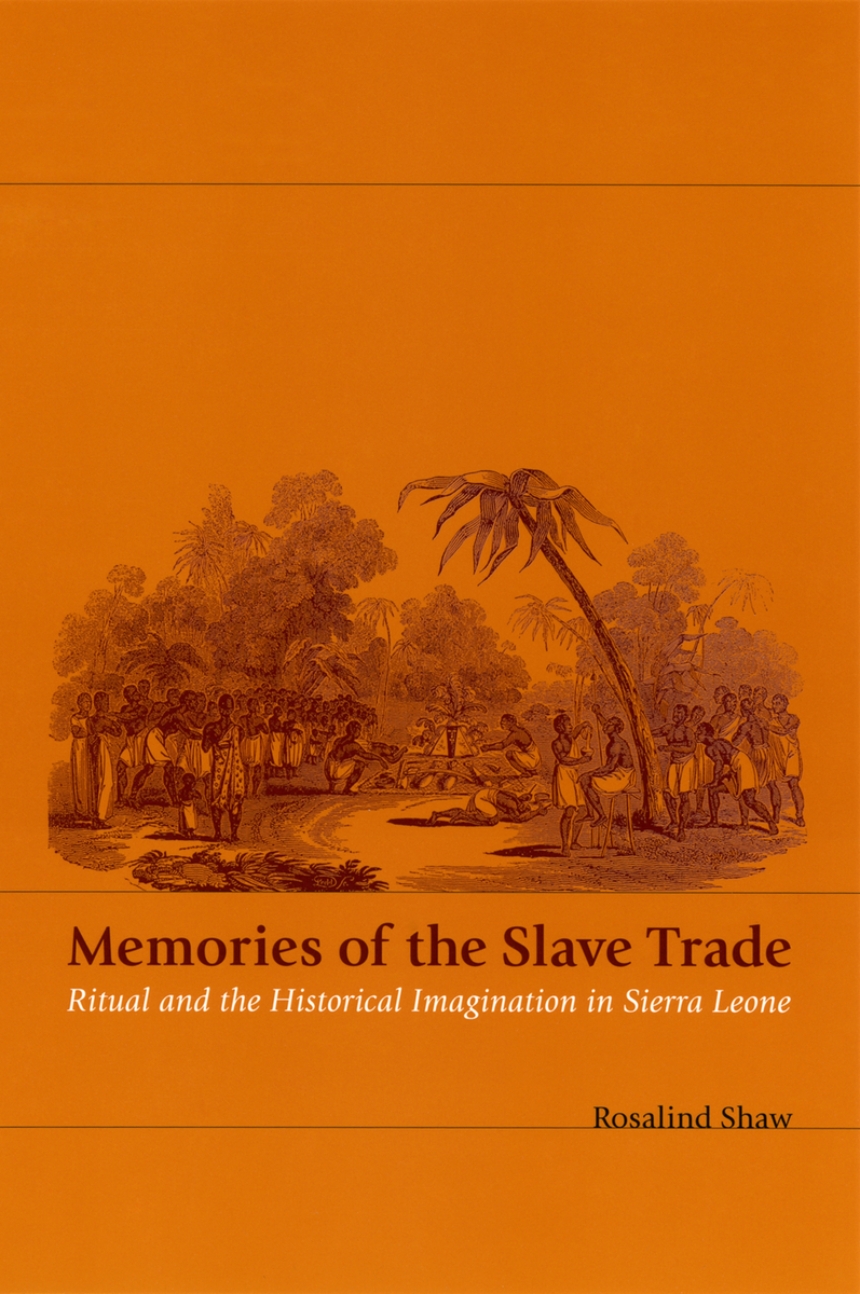Memories of the Slave Trade
Ritual and the Historical Imagination in Sierra Leone
9780226751320
9780226751313
9780226764467
Memories of the Slave Trade
Ritual and the Historical Imagination in Sierra Leone
How is the slave trade remembered in West Africa? In a work that challenges recurring claims that Africans felt (and still feel) no sense of moral responsibility concerning the sale of slaves, Rosalind Shaw traces memories of the slave trade in Temne-speaking communities in Sierra Leone. While the slave-trading past is rarely remembered in explicit verbal accounts, it is often made vividly present in such forms as rogue spirits, ritual specialists’ visions, and the imagery of divination techniques.
Drawing on extensive fieldwork and archival research, Shaw argues that memories of the slave trade have shaped (and been reshaped by) experiences of colonialism, postcolonialism, and the country’s ten-year rebel war. Thus money and commodities, for instance, are often linked to an invisible city of witches whose affluence was built on the theft of human lives. These ritual and visionary memories make hitherto invisible realities manifest, forming a prism through which past and present mutually configure each other.
Drawing on extensive fieldwork and archival research, Shaw argues that memories of the slave trade have shaped (and been reshaped by) experiences of colonialism, postcolonialism, and the country’s ten-year rebel war. Thus money and commodities, for instance, are often linked to an invisible city of witches whose affluence was built on the theft of human lives. These ritual and visionary memories make hitherto invisible realities manifest, forming a prism through which past and present mutually configure each other.
Table of Contents
List of Illustrations
Acknowledgments
Note on Temne Orthography
Introduction
1. The Atlanticizing of Sierra Leone
2. Spirit Memoryscape
3. Roads to Life, Roads to Death
Materializing Memory through Divination
4. Diviners’ Knowledge, Diviners’ Lives
5. A Thing under the Water
6. The Hidden Ritual Process
7. The Production of Witchcraft/Witchcraft as Production
8. Cannibal Transformations
Experiencing Colonialism in the Sierra Leone Hinterland
9. The Politician and the Diviner
Conclusion: Remembering Modernity
Notes
Bibliography
Index
Acknowledgments
Note on Temne Orthography
Introduction
1. The Atlanticizing of Sierra Leone
2. Spirit Memoryscape
3. Roads to Life, Roads to Death
Materializing Memory through Divination
4. Diviners’ Knowledge, Diviners’ Lives
5. A Thing under the Water
6. The Hidden Ritual Process
7. The Production of Witchcraft/Witchcraft as Production
8. Cannibal Transformations
Experiencing Colonialism in the Sierra Leone Hinterland
9. The Politician and the Diviner
Conclusion: Remembering Modernity
Notes
Bibliography
Index
